A scrap of paper changed the life of two-time cancer survivor Josh Vose, leading him away from the operating room and into the field of medical devices.
(text and background only visible when logged in)
Josh Vose’s career in medical devices began in front of a bulletin board in the basement of the Gilbert Hillhouse Boggs Building. It was 1999. Vose was in his third year. He was focused on getting through a summer of biochemistry, planning for medical school, and becoming a surgeon after Georgia Tech — until he saw that bulletin board and a flyer with tear-off tabs.
A startup company called SaluMedica was looking to hire undergraduate students. Vose pulled the last tab.
“It was a real Sliding Doors moment for me. If the tab wasn’t there or if I hadn’t grabbed it, everything in my life would have been different,” Vose remembered recently.
Vose got the job and became SaluMedica’s first intern, working on a new hydrogel for two years until graduation. There, he met Georgia Tech Professor David Ku, one of the company’s co-founders and its CEO. Ku’s mantra would stick with Vose through the years: Medical doctors can make a much greater difference in health by merging engineering and medical knowledge with business than they can through practice alone.
That $10-an-hour job and the experience Vose accumulated changed his entire perspective, eventually leading him out of a career in surgery. It’s a path that culminated last year when the 2001 chemical engineering graduate led a medical technology company through a $140 million acquisition.
Yet it’s far from the most impressive thing he’s accomplished since leaving campus: Vose beat cancer once. Then he did it again. All before the age of 45.
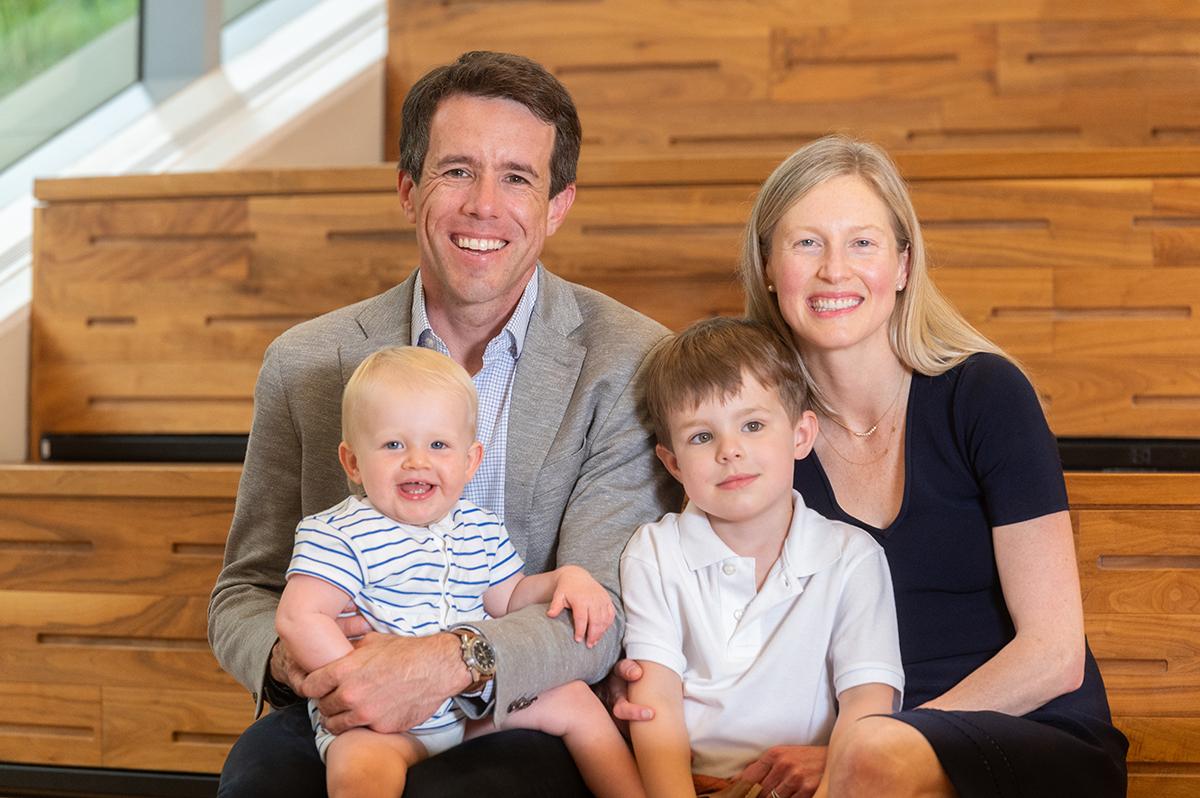
Vose and his wife, Madelyn Lodge, with their children, Eleanor and Everett, on a recent visit to Georgia Tech. (Photo: Allison Carter)
A Nightmare Come True
Vose fulfilled his post-Georgia Tech goal of earning his M.D. at the Medical College of Georgia. After a year as an intern at a teaching hospital of Harvard Medical School, he realized the thing he loved most wasn’t surgery. It was what he did at Tech: developing novel medical devices that could scale to improve health.
Vose quit surgery and started working as medical director for PEAK Surgical, overseeing the company’s human and animal research trials and working with surgeons to improve the company’s products. He helped grow PEAK’s revenues to $20 million a year before Medtronic purchased the company in 2011.
Medtronic asked him to come back a few years later, and in 2013 he joined the business unit that had acquired PEAK. Vose’s life took a new turn shortly after starting with the company. He was 37 and newly married when he woke from a nightmare about having leukemia.
“I’m not sure why, but I had a deeper feeling that something wasn’t right. Looking back, it was a premonition,” Vose said. “Two weeks later, I reached up and felt something behind my collarbone. I was supposed to fly to Europe that day; instead, I canceled my plans and went to Stanford Medicine’s emergency room.”
Doctors found a golf ball-sized lymph node and ultimately diagnosed him with stage 2A Hodgkin lymphoma, a cancer of the lymphatic system. As he discussed treatment options with his doctors, Vose found himself leaning on his time in Georgia Tech classrooms, where he learned the importance of tradeoff analyses.
“I had a choice in chemotherapy: two drugs twice a month for six months, or a more difficult regimen. I chose the hard and fast option: seven drugs, twice a week, for eight straight weeks,” Vose said. “And it was hard. But it worked.”
Vose fought through the side effects of treatment while continuing to work full-time as Medtronic’s medical officer. He wrapped up the treatment, took a one-week break, then began orientation for business school at the Massachusetts Institute of Technology.
“I was hairless, fatigued, and down 15 pounds, but also incredibly energized to be back with the rest of the living world doing something that really mattered to me,” Vose said.
A Second Fight
Vose had rowed for an intramural national championship while at Georgia Tech; after college, he transitioned from rowing to cycling. He joined a Seattle cycling club in the summer of 2020 and enjoyed the first group ride.
The second meet-up changed his life, again.
“I began passing a massive amount of blood after the second ride,” Vose said. “I had a colonoscopy as soon as possible and learned the effort from the challenging group ride had ruptured a vessel in a tumor in my colon.”
The mass was 5 centimeters in size. Doctors diagnosed stage 3 colon cancer, and once again, he was facing another treatment regimen, this time at just 43 years old. And as if to rub salt in the wound, he learned the diagnosis on the five-year anniversary of being declared free from Hodgkin’s.
“It was incredibly challenging, just simply from a mental perspective. The questions it raised about life, career, how you spend your time, and day-to-day priorities were profound. Getting through treatment is a grind, but it’s predictable; how you come to peace with your life and what comes next is the real challenge.”
Three years after surgery and chemo, Vose is once again in the clear. His doctors tell him the colon cancer is not expected to recur.
“Surviving cancer, for me at least, has been a catalyst to greater professional meaning and a clarifying exercise on my priorities in life,” said Vose, a father of two young children. “My goals beyond family are to work with people I admire and trust on endeavors that can scale to meaningful improvements in healthcare.”
Surviving cancer, for me at least, has been a catalyst to greater professional meaning and a clarifying exercise on my priorities in life. My goals beyond family are to work with people I admire and trust on endeavors that can scale to meaningful improvements in healthcare.
Josh Vose
Those goals were fulfilled leading Surgical Innovation Association (SIA) as CEO, a role he took in early 2021 in the aftermath of treatment. The medical device company’s flagship product was a resorbable polymer mesh used in breast reconstruction after mastectomy. During the reconstruction procedure, SIA’s mesh is placed underneath the permanent implant as a support, allowing new tissue to grow through and around the material. Vose led the company through its most recent financing and commercial growth, and he oversaw the acquisition process when SIA was purchased for $140 million by Integra Lifesciences in December 2022.
“Josh is so successful in the medical device profession because of his experience and genuine personality,” said Ku, a professor in the George W. Woodruff School of Mechanical Engineering who continues to stay in touch with Vose. “Most medical doctors understand the clinical reasoning of a new device but don’t know how the technology works. As a chemical engineer, Josh understands both.”
Now that the acquisition is wrapped up, Vose is engaging with Georgia Tech more than ever. He’s met with leaders at three entrepreneurial and research programs: CREATE-X, the Vertically Integrated Projects program, and VentureLab. He’s also exploring new startup possibilities and providing advice to a few faculty members.
“I could never have imagined as an undergrad standing in front of that bulletin board that my life would turn out this way,” Vose said. “But I am so thankful that it has. My Georgia Tech mentors invested so much in me, personally and professionally, that I will always be indebted to them and the Institute. Now it’s my turn to give back.”
(text and background only visible when logged in)
(text and background only visible when logged in)
Related Stories
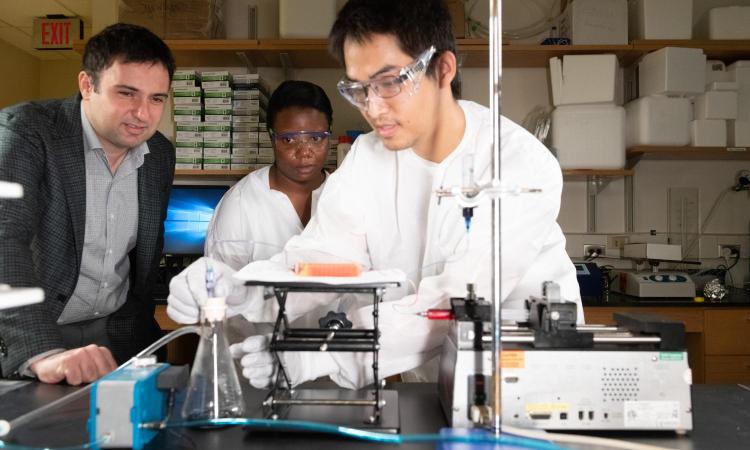
Cancer Fighters
Engineers are rewiring cells and creating new tools to improve cancer therapies and catch the disease earlier.
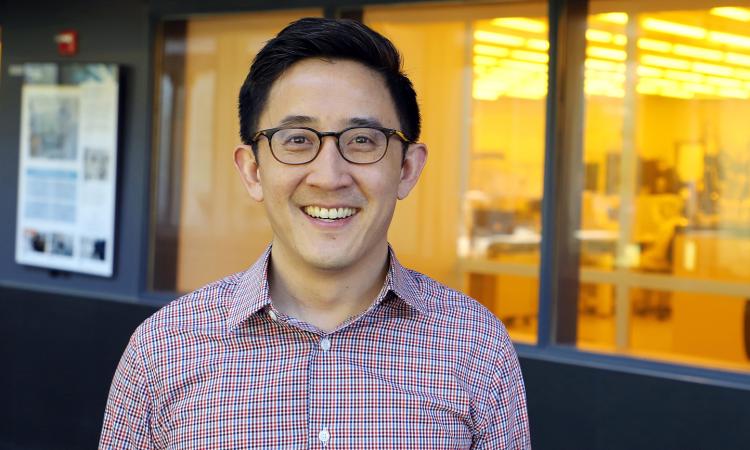
$50M Cancer Moonshot Grant Will Build an Atlas for Earlier Cancer Detection
Biomedical engineer Gabe Kwong will map cancer cell biomarkers, then engineer new sensors to hunt for multiple kinds of cancer.
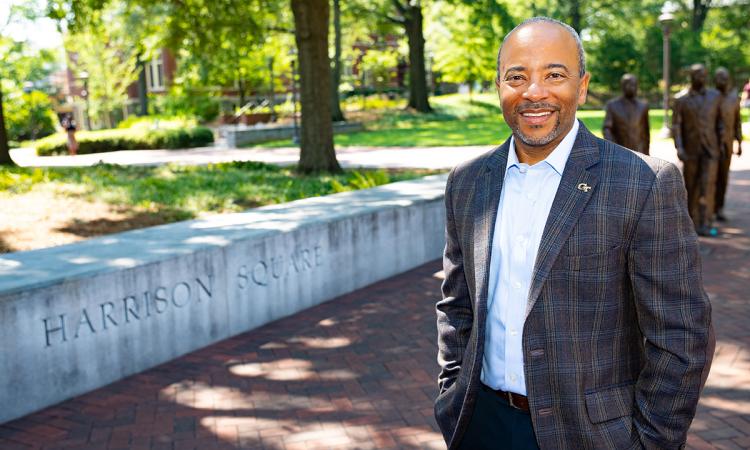
After Cancer Battle, Raheem Beyah Has a Message
Black men are twice as likely to die from prostate cancer. Georgia Tech’s engineering dean beat it a year ago and wants more men paying attention.
(text and background only visible when logged in)
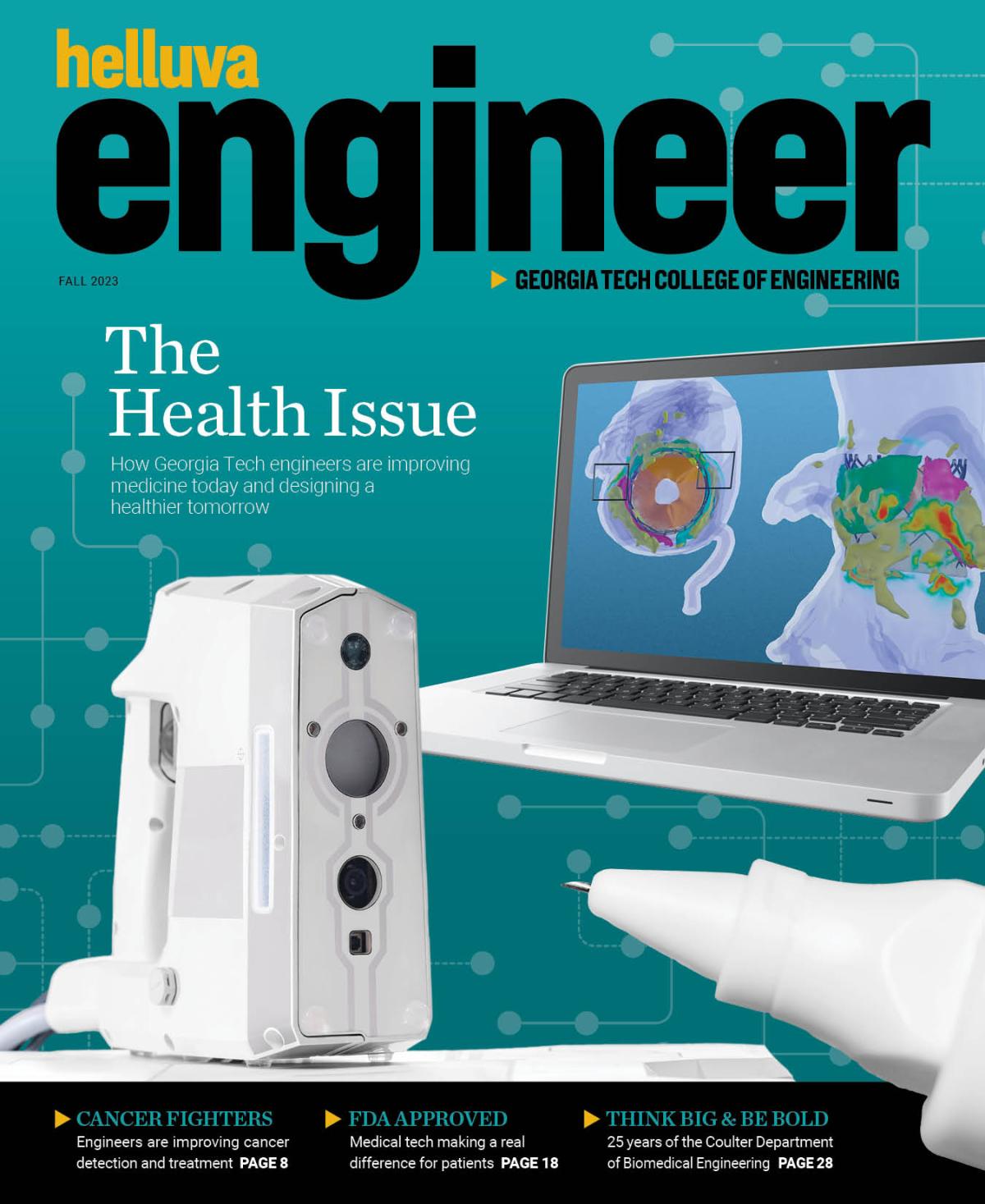
Helluva Engineer
This story originally appeared in the Fall 2023 issue of Helluva Engineer magazine.
With the top biomedical engineering program in the country, it’s only fitting that our rebooted College magazine focuses on health and medicine in our return issue. From cancer to anemia, synthetic biology to eye disease, Georgia Tech engineers are improving medicine today and designing a healthier tomorrow for us all.